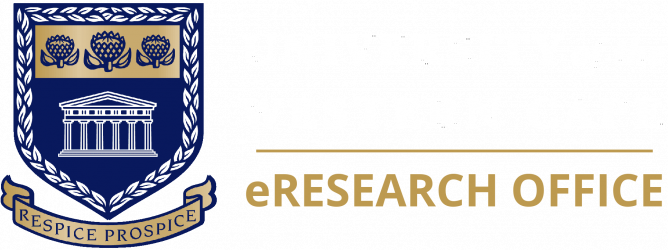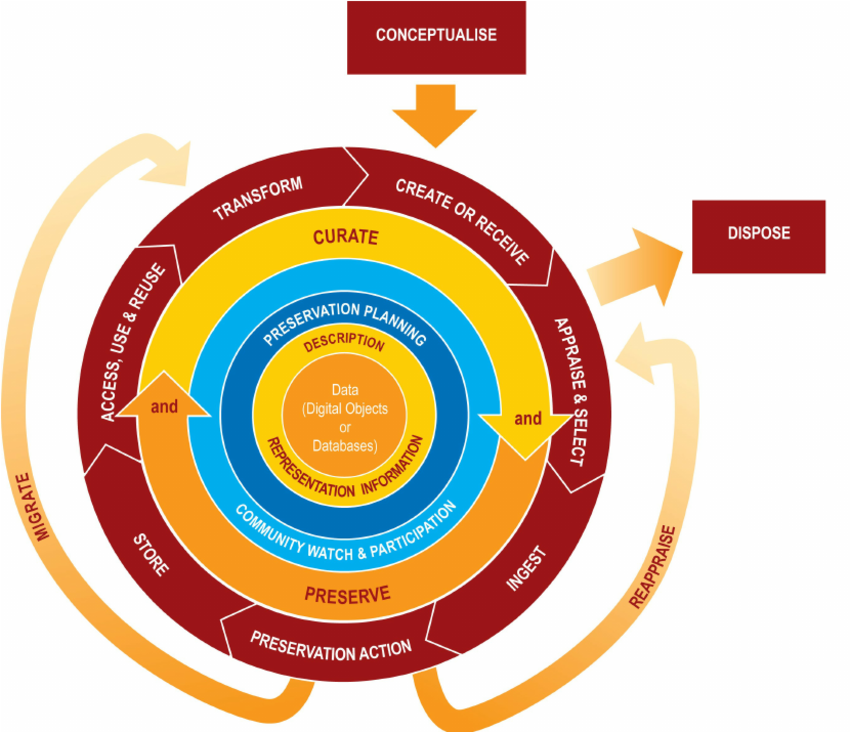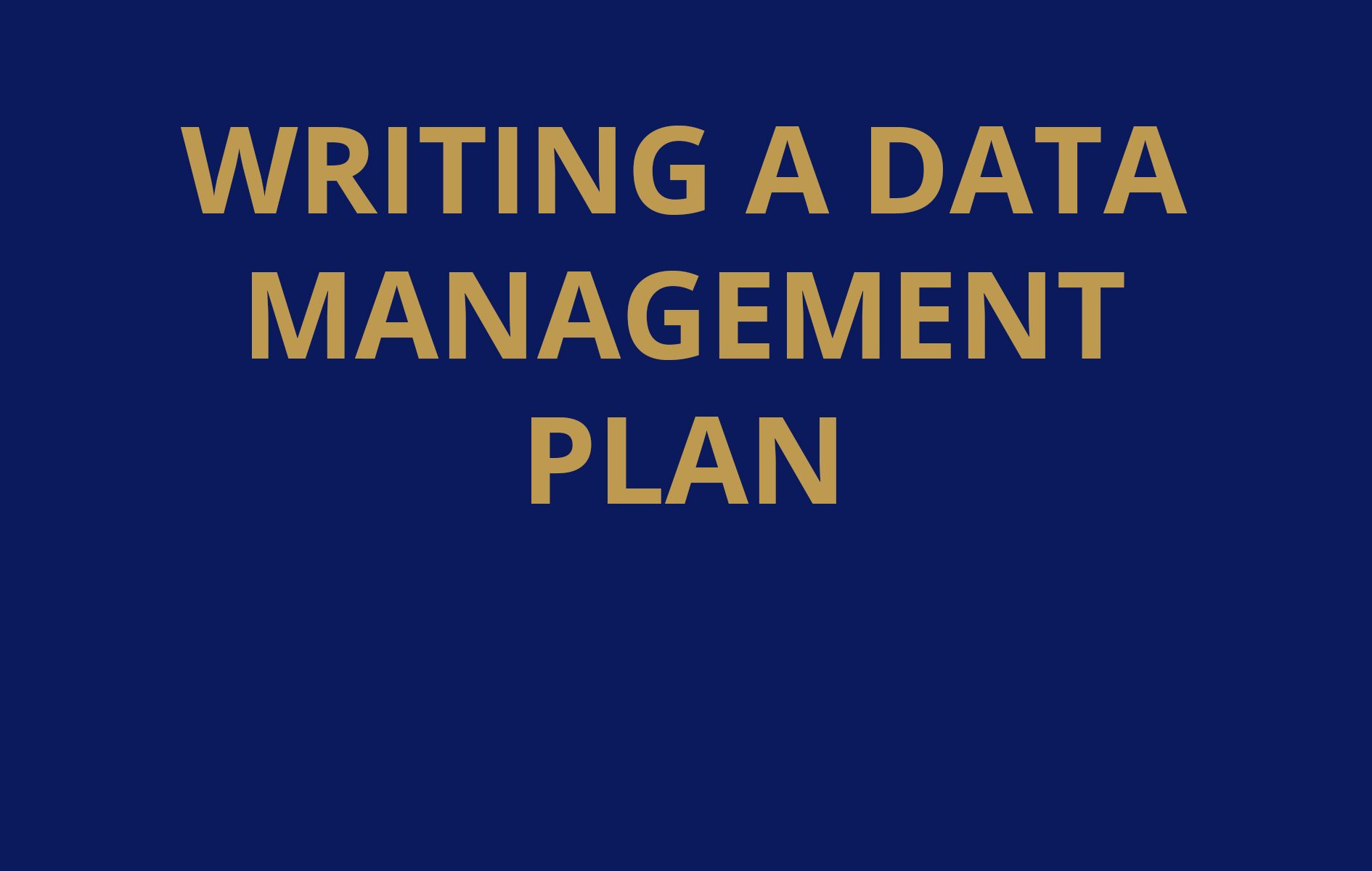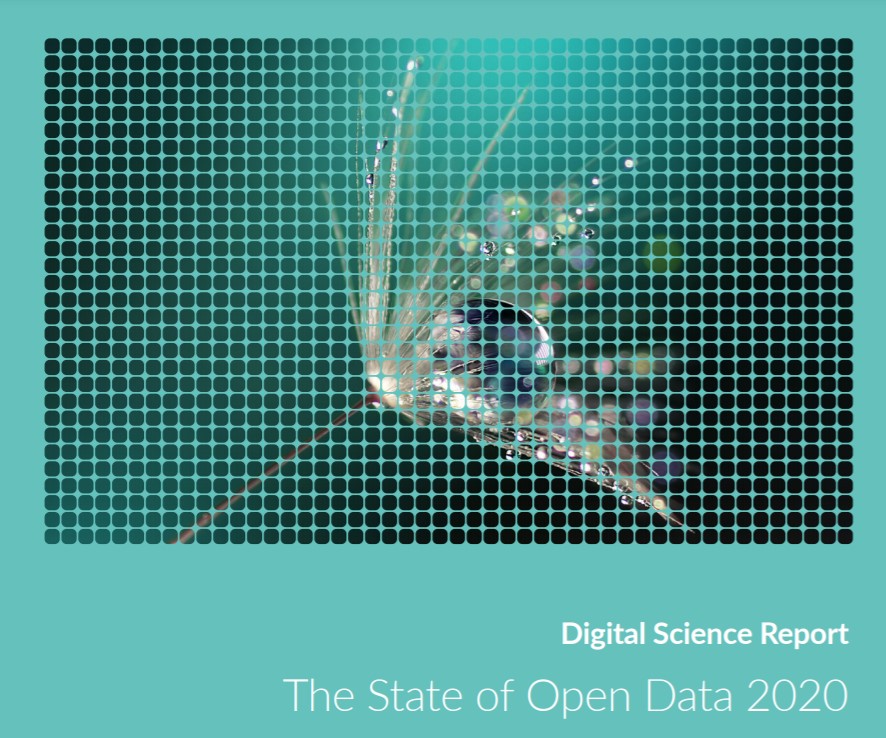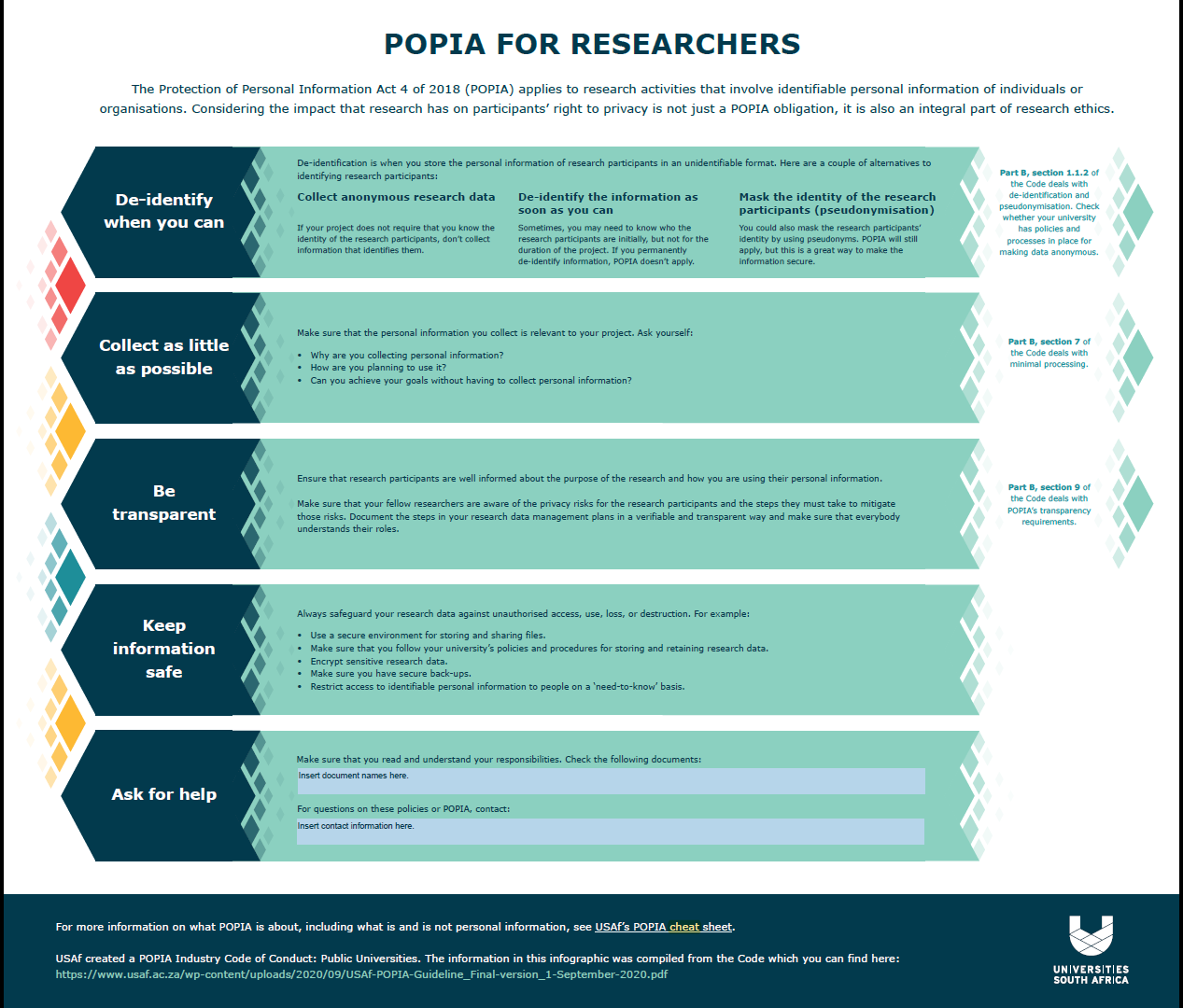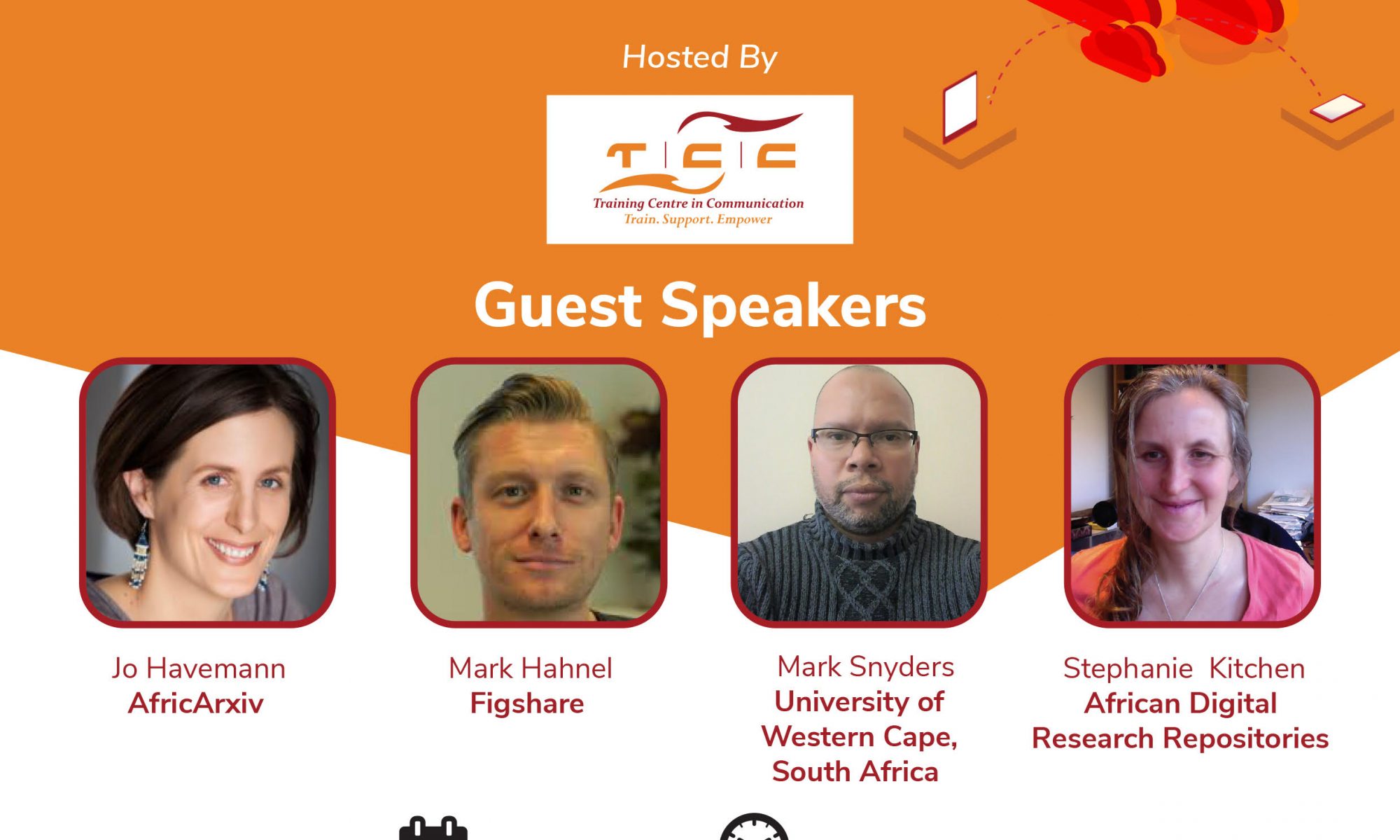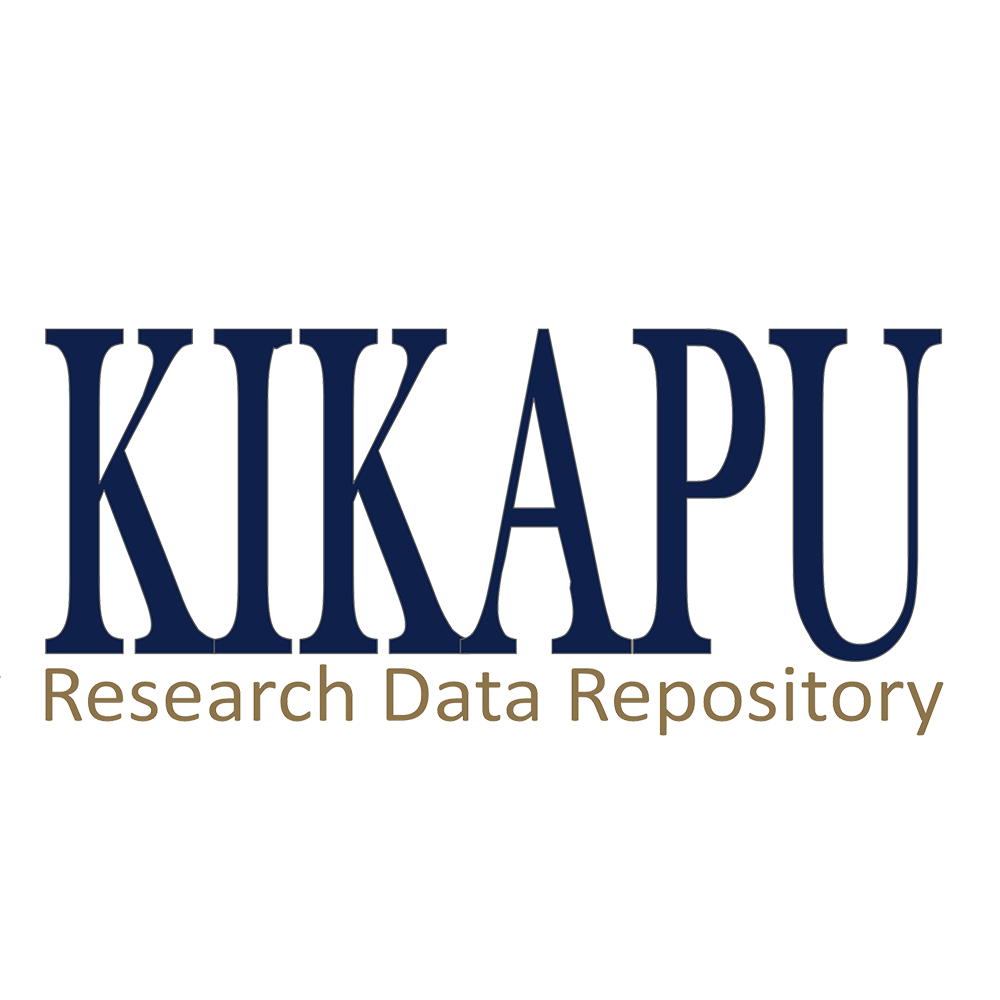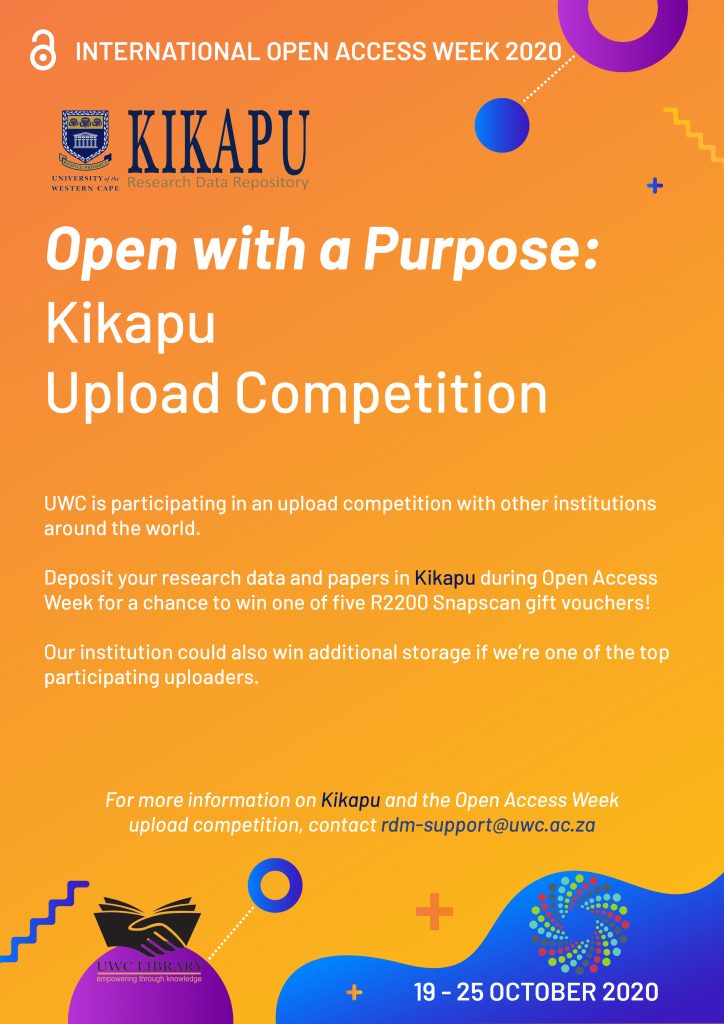Date : 21 April 2021, 11:00 – 12:00
Presenters:
Mark Snyders – Manager Scholarly Communication, UWC Library msnyders@uwc.ac.za;
Sarah Schäfer – Research Data Specialist, UWC eResearch Office, sschafer@uwc.ac.za
For the Q & A session, presenters will be joined by Mattia Vaccari (Director, UWC eResearch Office) and Alfred Nqotole (Deputy Director, UWC Library Services).
Audience: UWC Researchers – Staff and Postgraduate Students
Focus
Research data is the core of any research project, and its value can extend well beyond the initial project. Research data can also vary from highly confidential health data to publicly available statistics. Sharing research data can have many benefits such as developing further research, increased opportunities for collaboration and research impact. Research data, therefore, has to be managed with care and should adhere to established and institutional guidelines to protect not only the data, but also the rights of research subjects, researchers, research institutions and owners of research data. This webinar will focus on the guidelines provided by the UWC Research Data Policy that guides the management of UWC research data.
In recent years there has been a global increasing focus on Research Data Management (RDM), and on the secure storage and open sharing of research data. Institutions and funders have made clear strides toward identifying where and how research data is stored and how access to it is managed. In line with UWC’s new Research Data Management Policy (section 13 of the Research Policy), all research data generated at the University are managed and curated to support the institution’s aspirations of a research–intensive university. In order to achieve this, the UWC research community can make use of various RDM tools.
The webinar will briefly introduce some of the various RDM tools that are available to all UWC students and staff and are relevant to ensuring that RDM needs are met:
- Kikapu, UWC’s Institutional Research Data Repository. Kikapu provides a data storage facility where research data can be securely stored, shared and managed.
- REDCap, a web-based research productivity tool, empowers researchers to take control of their data collection and other research workflows.
- Data Management Plans (DMPs), written documents that describe and outline how data will be acquired, managed, described, analysed, stored, preserved and shared in the course of a research project. These documents should evolve with a research project, and develop as the project progresses. No two DMPs are the same, and elements vary from broad descriptions to very technical details.
Zoom link for registration: https://uwc.zoom.us/meeting/register/tJwvceGhrj8uHteFv1twJqLckDeIwbHe4D7u
